Click on images to enlarge
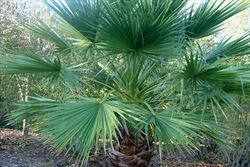
habit of young tree (Photo: Sheldon Navie)
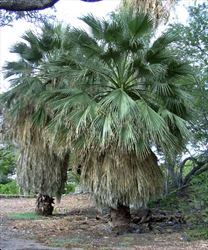
habit of older trees (Photo: Forest and Kim Starr, USGS)
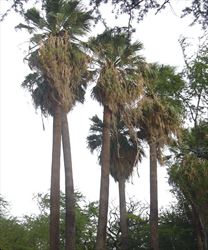
habit of mature trees with relatively thick trunks (Photo: Forest and Kim Starr, USGS)
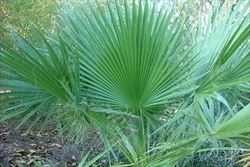
very large fan-shaped leaves (Photo: Sheldon Navie)
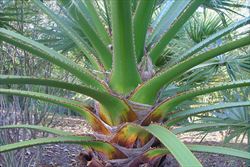
thick leaf stalks (Photo: Sheldon Navie)
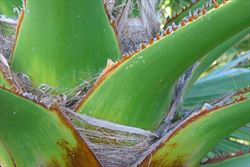
close-up of leaf sheaths at the base of the leaf stalks (Photo: Sheldon Navie)
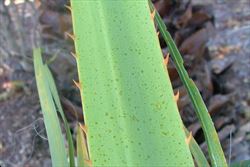
close-up of backwards-curved prickles on the leaf stalk (Photo: Sheldon Navie)
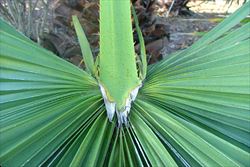
top of leaf stalk and base of fan-shaped leaf blade (Photo: Sheldon Navie)
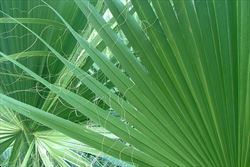
close-up of leaf segments showing the cotton-like threads (Photo: Sheldon Navie)
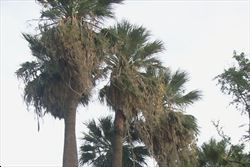
large hanging flower clusters on mature trees (Photo: Forest and Kim Starr, USGS)
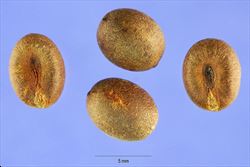
close-up of seeds (Photo: Steve Hurst at USDA PLANTS Database)
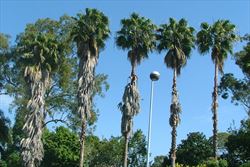
the very similar Mexican fan palm (Washingtonia robusta), with taller more slender stems (Photo: Sheldon Navie)
Scientific Name
Washingtonia filifera (Linden ex André) H. Wendl.
Synonyms
Pritchardia filifera Linden ex André
Family
Arecaceae (Queensland, New South Wales, the ACT, Victoria, Tasmania, Western Australia and the Northern Territory)Palmae (South Australia)
Common Names
American cotton palm, cabbage palmetto, California fan palm, California washingtonia, Californian fan palm, cotton palm, desert fan palm, desert palm, fan palm, petticoat palm, Washington palm
Origin
Native to south-western North America (i.e. Arizona and California in south-western USA and north-western Mexico).
Naturalised Distribution
Naturalised in some parts of southern and western Australia (i.e. in north-western and south-western Western Australia, in south-eastern South Australia and sparingly naturalised in Victoria).
Also naturalised in Hawaii and beyond its native range in the USA (i.e. in southern Nevada and Florida).
Notes
American cotton palm (Washingtonia filifera) is regarded as an environmental weed in Western Australia, Victoria and the Northern Territory.

